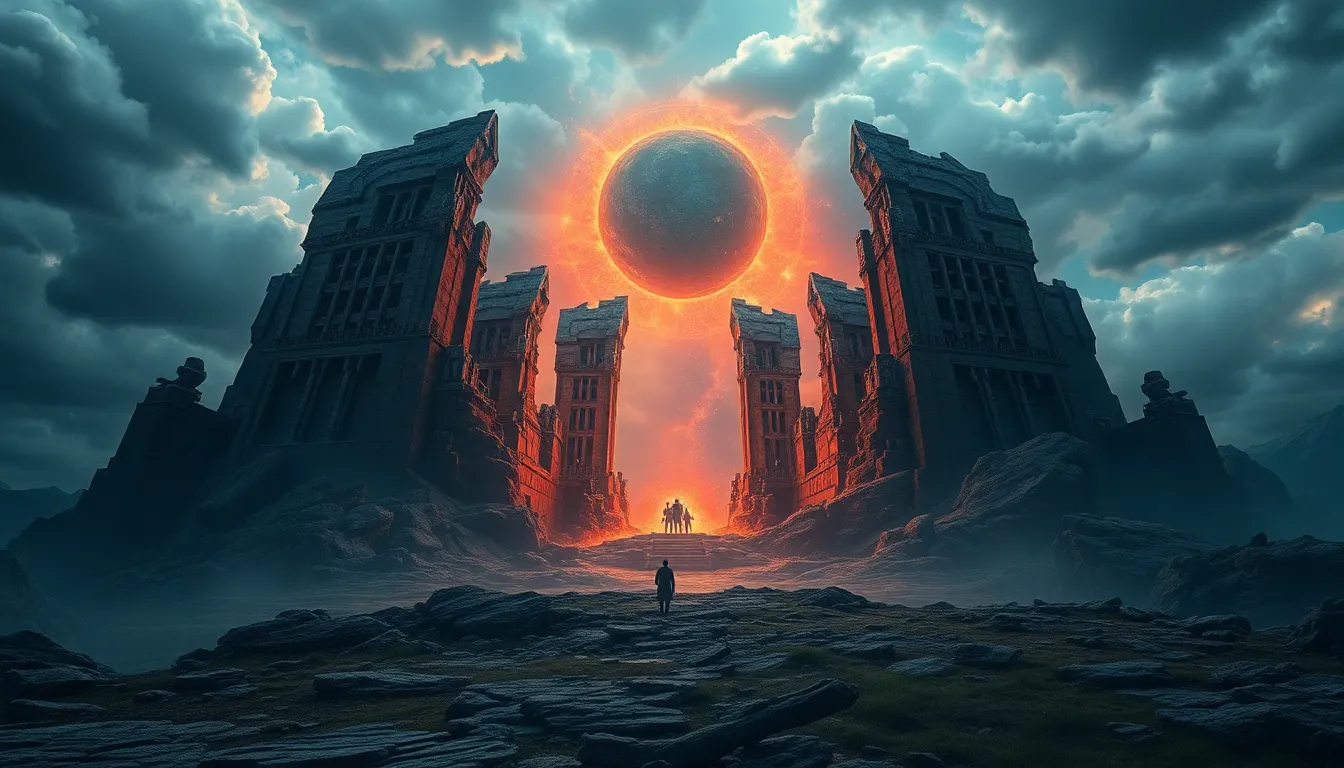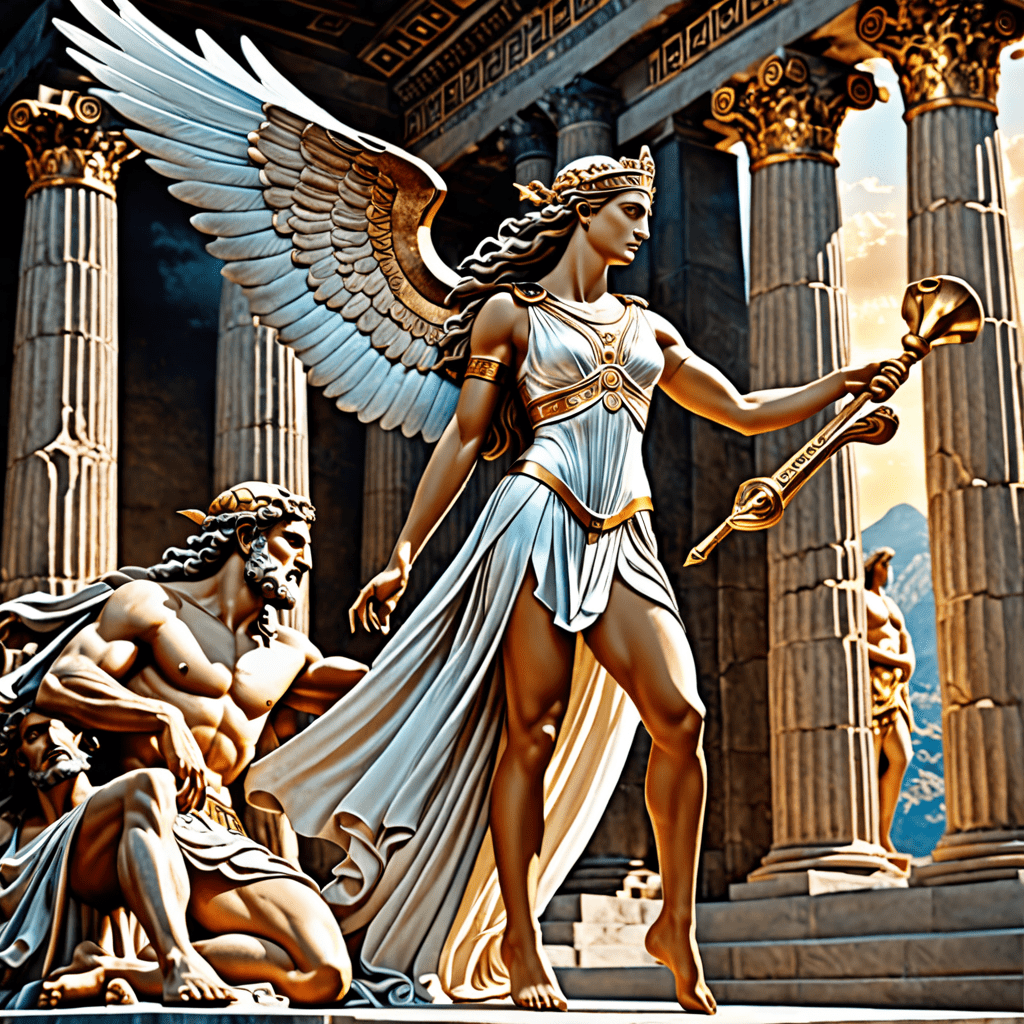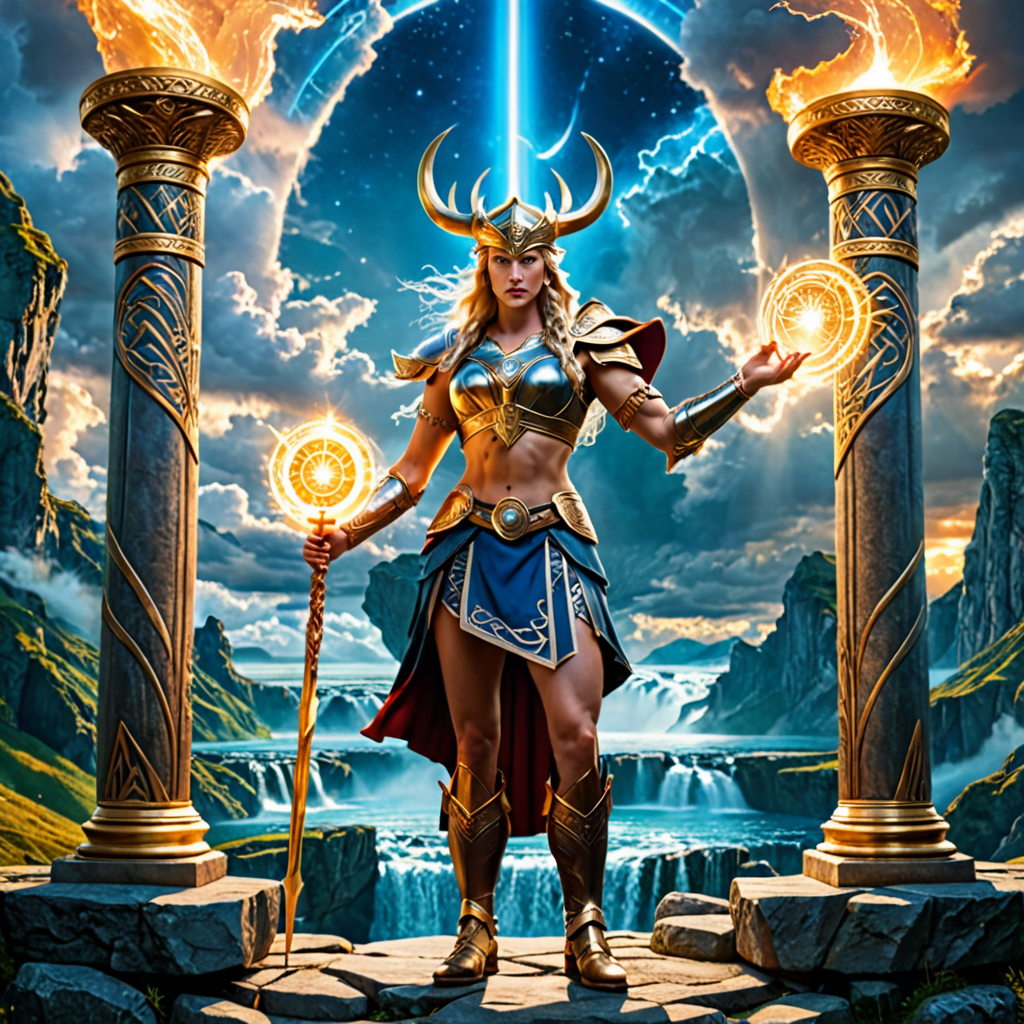The Apocalypse in Mythology: A Journey Through Time
I. Introduction
The term “apocalypse” often evokes images of cataclysmic events and the end of the world. In a mythological context, the apocalypse encompasses a rich tapestry of narratives that reflect humanity’s deepest fears and hopes regarding the fate of the world. These tales often explore themes of destruction, renewal, and the moral condition of humanity.
Apocalyptic narratives hold significant importance in human culture, serving as cautionary tales, moral lessons, and reflections of societal anxieties. They connect individuals to their cultural heritage and offer insights into the values and beliefs of different civilizations throughout history. This article will explore the concept of apocalypse across various cultures, examining ancient civilizations, sacred texts, eastern perspectives, indigenous myths, modern adaptations, and the psychological impact of these beliefs.
II. The Concept of Apocalypse Across Cultures
A. Common Themes in Apocalyptic Myths
Many cultures share common themes in their apocalyptic stories, including:
- Destruction and Renewal: The end is often followed by a new beginning.
- Moral Judgment: A reckoning where good and evil are separated.
- Natural Disasters: Events like floods, earthquakes, and fires serve as catalysts for change.
B. Differences in Interpretation and Meaning
While the core themes may be similar, interpretations of the apocalypse can vary greatly between cultures. For instance, some view the apocalypse as a literal end of the world, while others see it as a metaphor for personal or societal transformation.
C. The Role of Natural Disasters in Apocalyptic Stories
Natural disasters often play a crucial role in apocalyptic narratives. They are seen as divine retribution, signs of impending doom, or necessary cleansing processes. Such events underscore the power of nature and humanity’s vulnerability in the face of greater forces.
III. Ancient Civilizations and Their Apocalyptic Visions
A. Mesopotamian Myths: The Epic of Gilgamesh
In the ancient Mesopotamian epic, Gilgamesh grapples with the inevitability of death and the quest for immortality. The flood narrative within the epic echoes themes found in other cultures, depicting a divine decision to cleanse the earth, leading to renewal and rebirth.
B. Egyptian Beliefs: The End of the World through Ra’s Judgment
In Egyptian mythology, the sun god Ra would navigate through the underworld each night, confronting chaos and ensuring the renewal of life with each dawn. This cycle represents a continuous struggle against destruction, emphasizing the importance of moral conduct and cosmic order.
C. Greek Mythology: The Titanomachy and Its Aftermath
The Titanomachy, the battle between the Titans and the Olympian gods, symbolizes upheaval and transformation. The defeat of the Titans leads to a new order in the universe, illustrating the cyclical nature of creation and destruction within Greek mythology.
IV. The Abrahamic Traditions: Apocalyptic Narratives in Sacred Texts
A. Christianity: The Book of Revelation and the Second Coming
In Christianity, the Book of Revelation presents a vivid apocalyptic vision, detailing the Second Coming of Christ, the final judgment, and the establishment of a new heaven and earth. This narrative emphasizes hope and redemption despite the chaos of the end times.
B. Judaism: The Prophecies of Ezekiel and Daniel
Jewish apocalyptic literature, particularly in the prophecies of Ezekiel and Daniel, speaks of divine judgment and the eventual restoration of Israel. These texts reflect a longing for justice and the belief in a messianic age.
C. Islam: The Day of Judgment in the Quran
In Islam, the Day of Judgment is a fundamental belief, where all individuals will be resurrected and held accountable for their deeds. The Quran describes signs leading up to this day, emphasizing moral responsibility and the transient nature of life.
V. Eastern Perspectives on Apocalypse
A. Hindu Cosmology: Cycles of Creation and Destruction
Hindu cosmology presents a cyclical view of the universe, where creation and destruction occur in vast cycles known as Yugas. The end of one cycle leads to the creation of another, symbolizing the eternal nature of existence.
B. Buddhism: The Concept of Impermanence and the End of Suffering
In Buddhism, the concept of impermanence underscores that all things are transient. Apocalyptic themes are often related to the end of suffering through enlightenment rather than a literal end of the world.
C. Chinese Mythology: The Role of the Yellow Emperor and Cosmic Order
In Chinese mythology, the Yellow Emperor symbolizes the establishment of order after chaos. Apocalyptic myths often reflect the balance between chaos and order, emphasizing the cyclical nature of history and the importance of harmony.
VI. Indigenous and Folk Mythologies of Apocalypse
A. Native American Prophecies: The Great Purification
Many Native American cultures speak of a Great Purification, a time of cleansing and renewal where humanity must reconcile with nature and each other. These prophecies often highlight themes of balance and sustainability.
B. African Myths: The Return of the Ancestors
In various African traditions, the return of ancestors signifies a renewal of life and cultural values. Apocalyptic narratives often emphasize the importance of community and the cyclical nature of existence.
C. European Folklore: The Wild Hunt and Its Implications
The Wild Hunt in European folklore represents a ghostly procession associated with doom and the end of an era. This myth reflects societal fears and the consequences of moral decay.
VII. Modern Interpretations and Adaptations of Apocalyptic Mythology
A. Literature: From H.G. Wells to Contemporary Dystopian Novels
Modern literature has embraced apocalyptic themes, with authors like H.G. Wells exploring the implications of advanced technology and societal collapse. Contemporary dystopian novels often reflect current anxieties about the future.
B. Film and Television: Apocalyptic Themes in Popular Culture
Films and television series frequently depict apocalyptic scenarios, highlighting humanity’s struggle for survival. These narratives often serve as reflections of societal fears, ranging from environmental disasters to nuclear annihilation.
C. Video Games: Interactive Narratives of End Times
Video games have also explored apocalyptic themes, allowing players to engage with narratives surrounding survival and moral choices in a world on the brink of collapse. This interactive medium offers a unique perspective on the apocalypse.
VIII. The Psychological and Sociocultural Impact of Apocalyptic Beliefs
A. Fear and Hope: The Dual Nature of Apocalypse
Apocalyptic beliefs can evoke both fear and hope. While they often highlight the potential for destruction, they also suggest the possibility of renewal and redemption, shaping the way individuals and societies respond to crises.
B. Apocalyptic Movements in History and Their Social Implications
Throughout history, various apocalyptic movements have emerged, often driven by societal unrest and a desire for change. These movements can lead to significant social transformations, sometimes resulting in violence or radical reform.
C. The Role of Mythology in Coping with Crisis
Mythology serves as a coping mechanism for individuals facing crises, offering narratives that help make sense of chaos and uncertainty. By framing experiences within the context of larger stories, people can find meaning and resilience.
IX. Contemporary Issues and Real-World Parallels
A.




